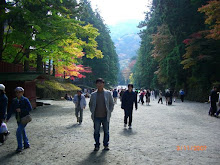Japanese archaeologists said Monday they have found a man-made water channel in northwest Cambodia used for rituals as far back as the first century.
"Before, it was said that Khmer civilization started from the seventh to ninth century AD, but based on our research here, Khmer civilization went back to the first century AD," said Yoshinori Yasuda, a professor of the International Research Center for Japanese Studies in Kyoto. He said that the discovered water channel may be the world's oldest, or some 600 years older than the Tikal ruins in Guatemala in the seventh to ninth centuries.
A series of discovery by Western and Japanese researchers recently have helped promote Khmer civilzation and tourism. Still, the main actor is the Khmer themselves: People tend value only things belong to the rich and the powerful. The French first didn't believe Angkor was built by the Khmer, referring to their inferiority at that time.
"Before, it was said that Khmer civilization started from the seventh to ninth century AD, but based on our research here, Khmer civilization went back to the first century AD," said Yoshinori Yasuda, a professor of the International Research Center for Japanese Studies in Kyoto. He said that the discovered water channel may be the world's oldest, or some 600 years older than the Tikal ruins in Guatemala in the seventh to ninth centuries.
A series of discovery by Western and Japanese researchers recently have helped promote Khmer civilzation and tourism. Still, the main actor is the Khmer themselves: People tend value only things belong to the rich and the powerful. The French first didn't believe Angkor was built by the Khmer, referring to their inferiority at that time.

No comments:
Post a Comment